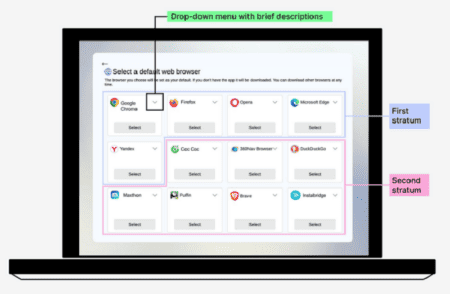Mozilla will use Clever-Commit, a programming assistant based on machine learning that it developed with game developer Ubisoft. Clever-Commit should significantly reduce the number of programming errors made in the Firefox browser, says Ars Technica.
Clever-Commit analyzes code changes as developers commit them to the Firefox codebase. These changes are compared to all the code it saw earlier, to see if they are similar to code that the system knows is faulty. If the assistant thinks the commit looks suspicious, it warns the developer. In that case, the error can be fixed before it reaches the source repository.
Clever-Commit can also suggest solutions for errors it finds. Mozilla wants to use Clever-Commit initially for code reviews, but later extend its use to other phases of development. It works with all three programming languages that Mozilla uses for Firefox, namely C++, JavaScript and Rust.
The tool builds on the work of Ubisoft La Forge, the research lab of Ubisoft. Last year the company presented the Commit-Assistant, based on research called CLEVER, which is a system for finding errors and suggesting solutions. This system found 60-70% of commits with errors, although in 30% of cases it also said wrongly that there were errors.
Mozilla expects a similar level of success when Clever-Commit is fully integrated into its development process. They assume that three to four of the five errors are found before they are committed. This is cheaper and simpler than when they are spotted when they are already in production.
IntelliCode
Microsoft also uses machine learning for programming. Last year it introduced a feature called IntelliCode in Visual Studio. IntelliCode is an experimental set of features built around artificial intelligence, which should help developers to work faster. IntelliCode can also be used to find errors, for example to detect whether variables have been used correctly.
This news article was automatically translated from Dutch to give Techzine.eu a head start. All news articles after September 1, 2019 are written in native English and NOT translated. All our background stories are written in native English as well. For more information read our launch article.


















